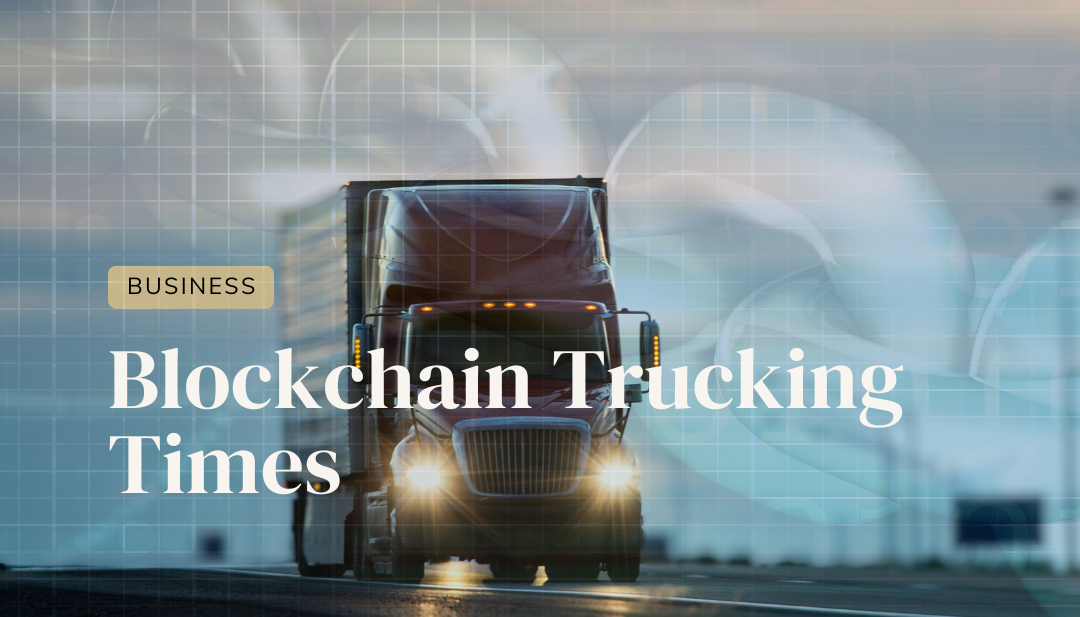- February 10, 2024
- by Truckology
- Blockchain, Transportation, Trucking
- 868 Views
- 0 Comments
Revolutionizing Freight: Exploring the Intersection of Trucking and Blockchain Technology
In an era where technological advancements are reshaping industries at an unprecedented pace, the trucking industry stands on the brink of a revolution. At the heart of this transformation lies blockchain technology, a decentralized ledger system that promises transparency, security, and efficiency in the movement of goods. As we delve into the intricate web of trucking logistics, we uncover the profound impact blockchain is poised to make on freight transportation.
Unveiling the Challenge
The conventional approach to freight transportation is filled with difficulties. From the burdensome paperwork to the fragmented communication channels, the process of moving goods from point A to point B is frequently hindered by inefficiencies and delays. In addition, there are significant concerns about transparency and accountability, as stakeholders are dealing with issues like counterfeit goods and lack of visibility in the supply chain.
Enter Blockchain: A Paradigm Shift
Blockchain technology presents a promising solution in the face of these challenges, revolutionizing the way trucking operations are carried out. Blockchain is essentially a decentralized ledger that securely records transactions in a transparent and unchangeable way. Every transaction, or “block,” is connected to the previous one, forming an unalterable and secure chain of data.
Enhancing transparency and traceability throughout the supply chain is a major benefit of implementing blockchain technology in the trucking industry. Through the implementation of blockchain technology, stakeholders are empowered to monitor the progress of goods in a timely manner, from the initial production stages to the final destination. This high level of transparency not only mitigates the potential for fraudulent activities and theft, but also fosters a stronger sense of trust among all parties engaged in the transportation process.
Streamlining Documentation and Compliance
The burdensome paperwork that has long been associated with the trucking industry becomes a thing of the past with the integration of blockchain technology. Through the digitization of various documents like bills of lading, invoices, and customs declarations, blockchain technology efficiently simplifies documentation processes. This results in a decrease in administrative burdens and a significant reduction in the potential for human error. In addition, smart contracts streamline compliance procedures by automating the execution of contracts based on predefined conditions encoded within the blockchain. This ensures that contractual obligations are fulfilled smoothly.
Blockchain promotes collaboration and efficiency among different stakeholders in the trucking ecosystem, while also emphasizing transparency and compliance. Through the implementation of a shared platform for data exchange, blockchain technology effectively breaks down barriers and promotes smooth communication among various stakeholders such as shippers, carriers, freight forwarders, and customs authorities. This improved collaboration not only speeds up decision-making processes but also streamlines resource allocation, resulting in cost savings and operational efficiencies.
The Future of Trucking
Looking ahead to the future of trucking, the combination of blockchain technology and freight transportation shows great potential. With its potential to transform various aspects of global trade, blockchain technology is set to revolutionize the movement of goods worldwide. It offers real-time tracking and tracing capabilities, streamlines payment settlements, and simplifies insurance claims processes. However, achieving this vision necessitates the cooperation of all stakeholders and the industry as a whole to overcome obstacles in technology and regulations.
Conclusion
Ultimately, the merging of trucking and blockchain technology ushers in a fresh wave of ingenuity and effectiveness in the realm of freight transportation. Through increased transparency, improved documentation processes, and enhanced collaboration, blockchain technology has the potential to completely transform the transportation of goods, leading us towards a future that is more interconnected and environmentally sustainable. As we embark on this transformative journey, let’s embrace the possibilities that blockchain offers and collaborate to fully unleash its potential in revolutionizing the freight industry.

